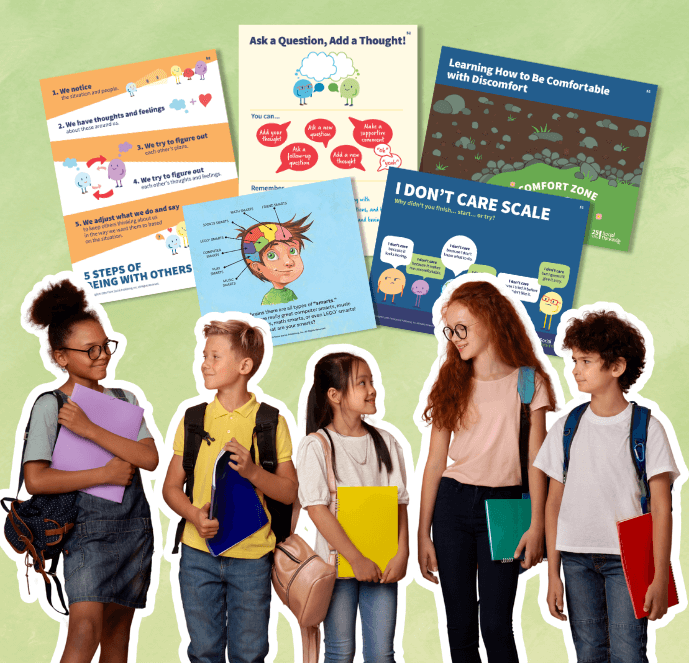Using Social Thinking in the Mainstream Classroom | A Way for ALL Kids to Learn Social Concepts Together

October 2023
Michelle Garcia Winner, MA, CCC-SLP & Dr. Pamela Crooke, CCC-SLP are Featured in Autism Advocate Parenting Magazine

The Social Thinking Methodology originated in schools more than 25 years ago in response to a lack of practical ways to explain different aspects of the social emotional world to both neurotypical and neurodivergent students. Michelle Garcia winner, the founder of the Social Thinking Methodology, continues to update core strategies and tools in response to ongoing and valuable input from individuals with a range of social emotional learning differences, disabilities and/or difficulties, as well as from mainstream teachers and learning specialists. Dr. Pamela Crooke joined forces with Michelle almost 17 years ago to further evolve components of the methodology. Tools from the Social Thinking Methodology have found their way into inclusion-based or mainstream classrooms since ALL students can benefit from a common vocabulary and understanding of the social and emotional world together.
Resources to Teach Social Thinking Vocabulary Examples Shared in Autism Advocate
Free Related Articles to Teach Social Thinking Vocabulary
Related Online Training

Implementing Social Thinking Concepts and Vocabulary
Both teachers and learners need practical ways to think about the social world. In this introductory course, you will learn 15+ practical teaching strategies using Social Thinking Vocabulary and visual frameworks. The activities from this course focus on making abstract social information more concrete through lessons to teach social learners how to socially attend, interpret, problem solve, and respond to social information. Activities will also focus on strategies for teaching emotional understanding, theory of mind/perspective taking, and executive functioning to help learners meet their own social goals. Note: This course is introductory and designed for those who are new to Social Thinking or just want to expand how they teach lessons from the Social Thinking Methodology. The 90-day Recorded Replay Access begins at the time of Registration.
4.5 hours of training and CE credit available for select professionals.
What is Social Thinking?
Develop Social Competencies
The Social Thinking Methodology provides evidence-based strategies to help people ages four throughout adulthood develop their social competencies, flexible thinking, and social problem solving to meet their own social goals and improve:
- Conversation & social connection
- Executive functioning
- Friendship & relationship development
- Perspective taking
- Self-regulation
- Social Thinking Vocabulary